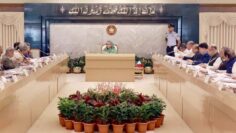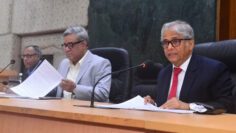GP charged for failing protection over customer’s information
Police have pressed charges against Grameenphone for its failure in protecting its customers’ confidential information. Tejgaon Industrial Police Additional Deputy Commissioner Hafiz Al Faruk confirmed the matter on Monday.
The country’s largest mobile network in a notice on Monday said it would fully cooperate with the police in their investigation.
“Grameenphone has been named as the prime accused in the case. GP employee Rubel Mahmud Anik was named as the second accused while Parveen Akter Nupur was named as third,” Police official Hafiz told bdnews24.com.
Both Anik and Nupur were recently arrested by the police. Anik allegedly used to steal user’s private information and passed them on to Nupur in exchange for money.
“Anik, who works at GP’s customer service centre, supplied an organised blackmailing group with confidential customer information used on their SIM registration in exchange for money. Using the information, the group has blackmailed many people and swindled hundreds of thousands of taka out of them,” Hafiz said.
“Grameenphone has failed to protect the private information of customers. It cannot avoid the liability,” he added.
atirjheel Police Inspector Md Golam Azam filed the case under sections 68, 74 and 76 of the 2001 Telecommunication Act (2010 Amendment).
Section 68 stipulates that if an employee or an operator in the course of his duty – use any telecommunication apparatus or radio apparatus with the intent to obtain any information relating to the sender or addressee and discloses it, he will be penalised with five-year jail term or Tk 10 million in fine or both.
Section 74 states that if a person aids or instigates or conspires to commit such acts, it would be considered an offence and thus penalised.
And acording to section 76, if the person contravening a provision contained in or made under this act is a company, every owner, director, manager, secretary or other officer or employee or representative of the company shall be deemed to have violated that provision, unless he proves that the violation took place beyond his knowledge or that he took all possible steps within his capacity to prevent the violation.



















